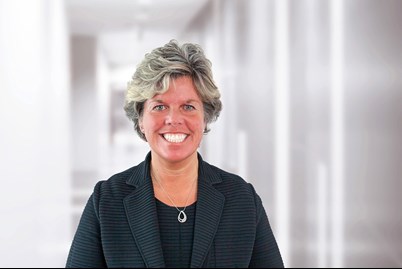




Our first ever Human Rights Report, published today, outlines how we are safeguarding human rights across our organization and supply chain and providing more transparency on the key issues we face. We spoke with Ahold Delhaize’s Chief Legal Officer, Jan Ernst de Groot, and Chief Human Resources Officer, Abbe Luersman to get more insight into what they learned from the due diligence process and how the company will evolve to meet human rights challenges now and into the future.
What’s the purpose of the Human Rights Report? What prompted you to undertake this process?
Jan Ernst: As a large food retailer, we work at the heart of society and supply chains, deeply connected to our communities and interacting with millions of people daily. Our belief that all people should be treated with dignity and respect has been at the core of our Code of Ethics for many years; however, the difficult part for many associates is understanding how to integrate this into their daily work. It’s a journey that never ends, because as human lives and business models evolve over time, so does the manifestation of human rights and what they stand for.
Abbe: After publishing our position on Human Rights in 2017, we started a human rights due diligence in 2018 to help us better understand the company’s impacts and opportunities. This report is the result of that work and is based on the UN Guiding Principles and its Reporting Framework. We believe that by addressing human rights pro-actively, we can positively impact many lives.
Could you explain which human rights issues are particularly important for Ahold Delhaize and why?
Abbe: As a food retailer we have a responsibility to provide affordable, healthy and nutritious food, produced with respect for people and nature. The COVID-19 pandemic has brought this into an even sharper focus. Since food retail is labor-intensive, working conditions along the whole supply chain are also on our radar. According to public opinion, we are increasingly expected to assume responsibility for topics and areas that are beyond the traditional scope of our accountability. So we have to take a more expansive view.
In recent years, we have started programs on important topics around women’s rights, freedom of association and compensation. Personal privacy is another human rights issue we focus on as an online and digital business – especially in areas like data use and personalization. And finally, discrimination and harassment are urgent issues that require the attention of everyone, including Ahold Delhaize and its local brands.
Food retailers deal with a large number of suppliers. How can you address human rights issues in your supply chain?
Jan Ernst: We aim to ensure that all our suppliers demonstrate a high standard of business ethics and regard for human rights, and that our products are safe, high quality, and produced in clean, safe and efficient facilities with good working conditions. We embed these expectations into the standards of engagement that form part of every buying agreement.
Of course, this is not an easy task since we’re dealing with thousands of suppliers and subcontractors across the globe, some of whom even lack insight into their own production processes and circumstances. So, we often rely on certification and audits to ensure that 2 / 2 companies do what they say they will. For example, we require Business Social Compliance Initiative or equivalent audit reports from all our suppliers in high-risk countries. We take care in selecting our suppliers, monitoring their performance and supporting them in making improvements to their processes and working conditions. If we find child labor, forced labor or other serious violations, we terminate our relationship with that supplier.
And we try to live by the saying: collaborate beyond your comfort zone. Partnering, not only with our suppliers but also with industry peers, governments, NGOs and other stakeholders is indispensable in order to change systemic and endemic issues.
What is the impact of Covid-19 on human rights for Ahold Delhaize?
Abbe: The world around us is changing fast, and COVID-19 is testing all of us: governments,
businesses, communities and individuals. Respect for human rights across the spectrum – economic, social, cultural, civil and political – will be fundamental to the success of the public health response and recovery from the pandemic.
We are all looking for ways to deal with the uncertainties that have arisen from the pandemic. Now, more than ever, is a time for cooperation – for taking good care of each other, of our families and friends and those who need extra assistance. We want to leverage this momentum to more deeply embed respect for human rights into our company culture.
What is the most important thing you learned from the due diligence process? What inspired you the most?
Jan Ernst: I was impressed by the real opportunity that each individual associate has to make a difference: if only by showing respect, by signaling opportunities, by trying – really doing their best – to understand other people’s points of view, by treating them the way they would want to be treated themselves. . The report made clear that the real difference starts when we have the courage to go beyond risk and compliance and aspire to bring positive change to the lives of those who are affected by our business.
Abbe: As one of the world’s largest retailers, we are part of a vital sector and our associates and brands play a critical role in society. We have a big responsibility toward customers, associates, and the communities we serve to set the right example. We know there is no right way to do a wrong thing. Our people are at the center of everything we do, and they live this value of utmost integrity daily. Today, more than ever, people want to feel engaged in their work and know that it has a purpose. This power of purpose creates the momentum to drive the sustainable change needed to dismantle structures that systematically disadvantage some and advantage others. I am pleased to see we are making progress in our human rights practices and policies and am so proud of our colleagues and partners across the organization and beyond who created the report. There is so much positive energy and clear commitment behind it. We know we can no longer just strive to change…we have to be the change.
Now that the report is published, what are the next steps?
Jan Ernst: We will use this report to drive engagement on human rights across the company and continue to collaborate – with other companies, investors and other stakeholders – to achieve change and address our human rights impacts. We have many actions underway to make sure we keep moving in the right direction. We will develop a global position on all our salient issues and strengthen our governance around human rights. Each brand will develop its own roadmap for the future, so we ensure local needs and circumstances are being appropriately considered. And we will continue to communicate publicly on our progress, including in our Annual Report, because transparency is key.
 |
 |
|
|
Jan Ernst de Groot Chief Legal Officer |
Abbe Luersman Chief Human Resources Officer |
|